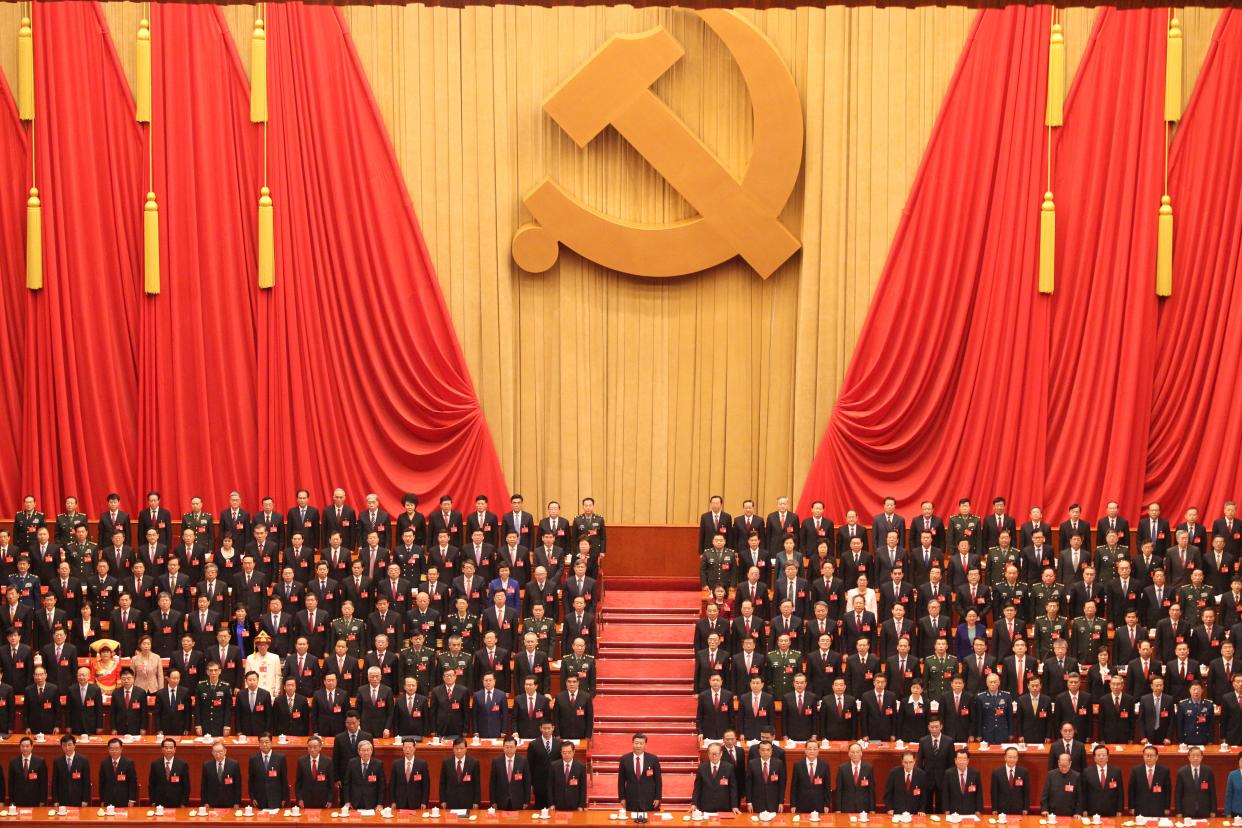China told US banks like Goldman Sachs and JPMorgan to avoid publishing politically sensitive research ahead of a key Communist Party summit, report says

The China Securities Regulatory Commission recently contacted multiple banks, including JPMorgan and Goldman Sachs, according to the WSJ.
The regulator advised against publishing politically sensitive research ahead of China's key Communist Party summit next month, the report said.
China's twice-a-decade leadership gathering begins October 16, and party members are expected to extend President Xi Jinping's rule to a third term.
The China Securities Regulatory Commission contacted several investment banks, including JPMorgan and Goldman Sachs, telling them to avoid publishing politically sensitive research ahead of the Communist Party's National Congress summit, according to the Wall Street Journal.
The Chinese regulator sent an advisory to the domestic units of large international banks, and the message was spread internally by some firms, the Journal reported, adding that strategists at JPMorgan's private banking arm in Asia were told not to comment on sensitive subjects for the time being.
In a comment for the Journal, the China Securities Regulatory Commission said: "The content of your inquiry is not true, please do not spread it."
JPMorgan did not respond immediately to a request for comment, while Goldman Sachs declined to comment.
China's twice-a-decade leadership gathering will begin October 16. Communist Party members will discuss the next five years of policy and are expected to extend President Xi Jinping's rule to a third term.
Previously, securities regulators have sent memos to banks ahead of key political events with the aim of preventing market turmoil or downbeat headlines. But the 20th National Congress comes amid growing public discontent over Beijing's handling of the economy.
Topics that are likely sensitive include zero-COVID policies that have generated increasing backlash, and the country's real estate crash. One recent JPMorgan note dissected a mortgage revolt in China and whether it could spark a "Lehman moment," according to the Journal.
Meanwhile, China's economy is slowing down and could miss growth targets, while the yuan has been falling.
Beijing's policymakers have been busy with financial markets over the past week. Reuters reported that China told state-owned banks to get ready to sell dollars and buy yuan in an effort to prop up the currency, which has faltered in recent months.
However, at the same time, the People's Bank of China boosted bank liquidity by 843% this week compared to last, which could have been motivated in part by the upcoming Communist Party summit as well as the approaching Golden Week holiday.
That large cash injection, however, adds more pressure to the yuan, which is on pace for its worst annual performance since 1994. It fell to a record-low against the dollar earlier this week.
Read the original article on Business Insider


